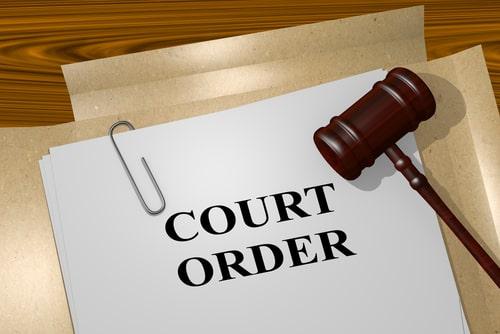What You Need to Know About Temporary Orders in an Illinois Divorce
 When a married couple decides to divorce, there are a lot of decisions that need to be made. How will their assets be divided? Where will the children live? Who will pay child support? These are all important questions that must be addressed during the divorce process. While a couple's divorce decree will set down the final decisions made in these areas, some issues may need to be addressed while the case is ongoing. Temporary orders can address these issues.
When a married couple decides to divorce, there are a lot of decisions that need to be made. How will their assets be divided? Where will the children live? Who will pay child support? These are all important questions that must be addressed during the divorce process. While a couple's divorce decree will set down the final decisions made in these areas, some issues may need to be addressed while the case is ongoing. Temporary orders can address these issues.
What Are Temporary Orders?
Temporary orders (sometimes referred to as temporary relief) are court orders that are issued on a temporary basis during a divorce case. In Illinois, a person will request temporary relief when filing a divorce petition, and the other spouse may also make requests when they file a response. The judge will address these requests and issue temporary orders at the beginning of the case.
At any time during the divorce process, either spouse may file a petition requesting temporary relief, and a hearing will be held to determine how certain issues will be handled. Once a temporary order is issued, it will remain in effect until the completion of the divorce, unless another temporary order is issued at a later date that modifies or reverses the initial order. Once the divorce is finalized, the terms of the divorce decree will supersede any temporary orders that had been put in place.
Temporary orders may address issues such as:
-
Possession of property - While making decisions about the division of marital property, either spouse may believe that they should be able to maintain possession of certain items, and they may ask the judge to issue orders allowing them to keep different assets. Depending on how living arrangements and other issues are handled during a couple's divorce, a spouse may ask the judge to grant them exclusive possession of their marital home, vehicles, or other property. Spouses may also ask the judge to issue temporary restraining orders that will prevent the parties from making any major financial transactions or attempting to hide assets or transfer them to other parties.
-
Child custody - Temporary orders may address the physical and legal custody of the couple's children during divorce proceedings. In many cases, the primary issue to address will be where children will live and when they will spend time with each parent. The judge may issue orders establishing a temporary parenting time schedule that will be followed during the divorce case. Parents may also ask the judge to issue orders specifying who will have the right to make important decisions regarding the children's education, healthcare, and religious upbringing.
-
Financial support - Depending on a couple's financial situation, either spouse may believe that they need to receive support from the other to address the needs of themselves or their children. Temporary child support or spousal support orders may be issued based on the needs of each party, and they may specify the amount that one spouse will pay to the other and the dates on which these payments must be made.
Contact Our DuPage County Divorce Attorneys
If you are going through a divorce in Illinois, it is important to understand what types of temporary orders might be available to you and how you can make sure different issues will be addressed correctly as you work to end your marriage. At Farooqi & Husain Law Office, we can guide you through the divorce process and advocate for your rights as you request temporary relief or respond to requests made by your spouse. Contact our skilled Oakbrook Terrace divorce lawyers today at 630-909-9114 to set up a consultation.
Source:
https://www.ilga.gov/legislation/ilcs/documents/075000050k501.htm


 630-909-9114
630-909-9114




